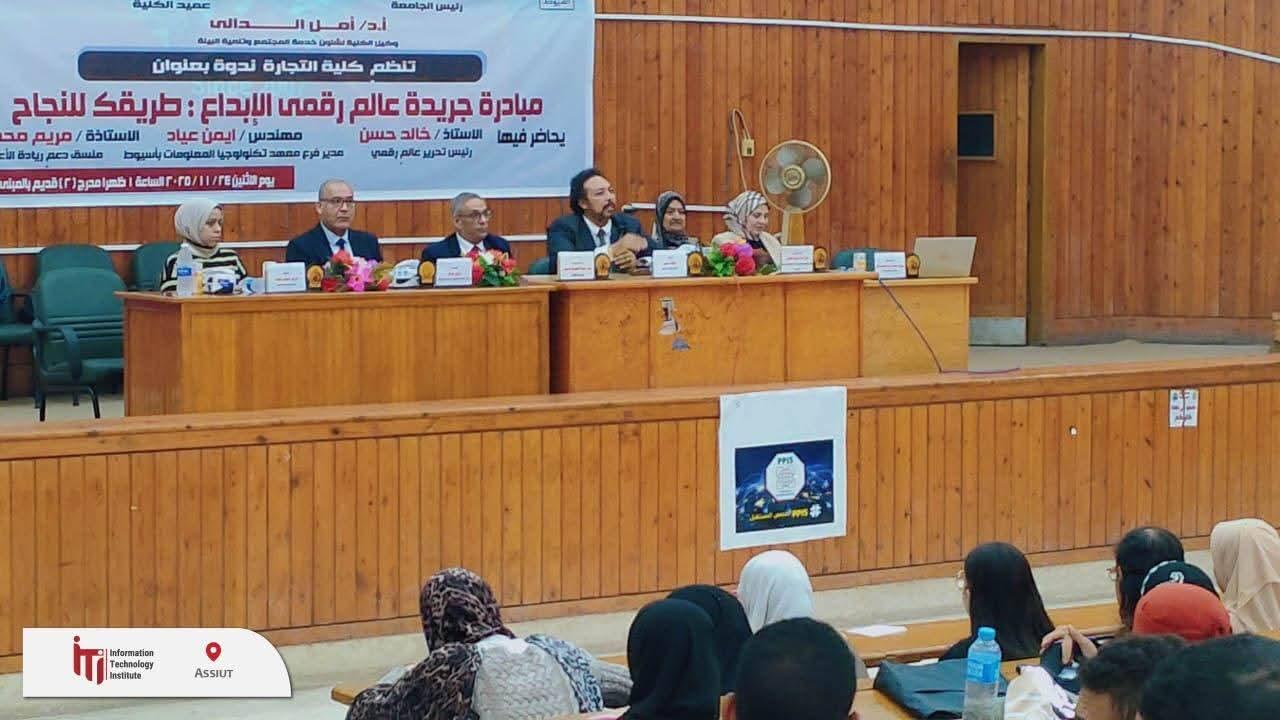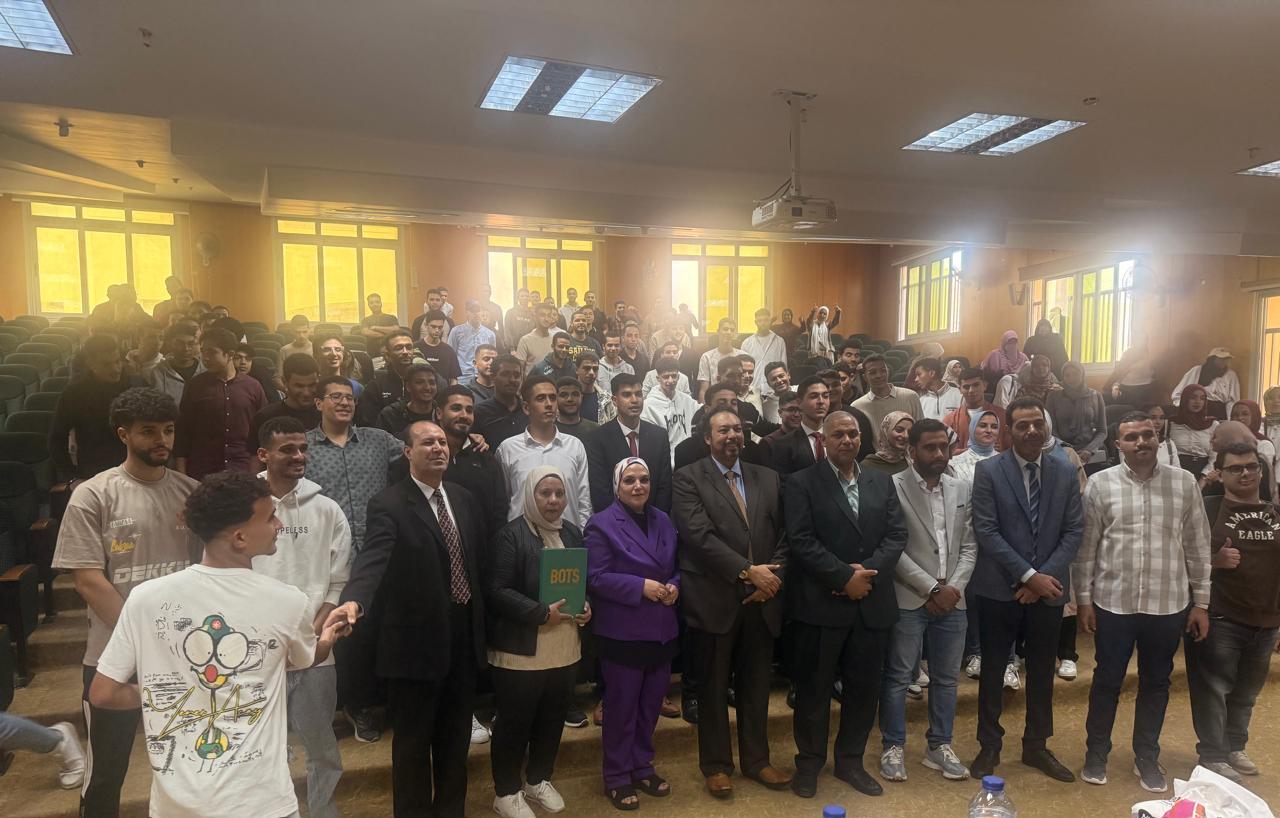By : Mostafa Ibrahim - Wael Elgafary
As the global economy embraces rapid digital and intelligent transformation, cyberspace is facing severe security challenges. Tomorrow’s development needs integrated security solutions to automatically adapt to digital transformation and shifting governments and businesses need a synchronized response to threats, with cybersecurity at the helm.
Cybersecurity plays a critical role as the foundation of digital transformation. The three pillars of IT - people, process, and technology - have been widely recognized for their importance in driving organizational success, and the same principle applies to cybersecurity. By synchronizing digital transformation with cybersecurity, oragnizations can ensure that they are not only adopting new technologies and processes but also protecting their systems and data from potential cyber threats.
Pillar I: The People
One of the fundamental pillars of cybersecurity is the human factor, which has two essential elements. This element is not limited to having talented cybersecurity experts, but it also highlights the crucial role played by end-users in ensuring security. In fact, studies have shown that 90% of all cybersecurity breaches are the result of human error.
To succeed in the digital world, cybersecurity education and training must be established for young individuals, and ongoing training programs for professionals in the field are necessary. We are committed to equipping people with "cyber literacy" skills and raising awareness to mitigate these risks. We have established more than 82 academies in Egypt, partnering with both public and private universities. Our efforts have led to the training of over 35,000 students, with 10,000 of them receiving international certificates from Huawei in fields including artificial intelligence, cloud computing, and networks. We are committed to fostering capable calibers who can create a safe and secure digital environment.
Pillar II: The Process
Process is a crucial pillar of cybersecurity, as it enables the implementation of effective management systems and policies. It encompasses the processes, frameworks, and procedures that are in place to prevent attacks proactively and respond to incidents or threats quickly.
Process involves understanding the 'how, when, and why' of security. As an integral part of the local ecosystem, Huawei Egypt actively supports the secure and stable operations of customer networks. We strive to enhance network cyber resilience, participate in the cultivation of local cybersecurity technical talent, and foster an open and cooperative platform to bolster Egypt's cybersecurity maturity.
The National Telecom Regulatory Authority (NTRA) and the Cyber Security Prosecution have made commendable contributions in ensuring the safety of Egypt's national information infrastructure. These efforts involved not only formulating regulatory systems, but also protecting important digital assets and data. Such measures highlight a significant push towards constructing an impregnable cyber-security framework. Also, the Egyptian government is taking proactive measures by implementing regulations and launching a new National Cybersecurity Strategy for 2023 to 2027, aimed at effectively addressing cybersecurity threats. Through these efforts, Egypt intends to enhance its cybersecurity governance, protect its citizens from cyber threats, encourage scientific research and development, and promote the growth of the cybersecurity industry in the country.
Huawei recognizes the significance of Egypt's cybersecurity priorities for the successful implementation of the country's digital transformation. We are actively collaborating with our partners to strengthen our relationships with upstream and downstream partners in the supply chain, as well as the external security ecosystem. This includes vulnerability researchers, security companies, and security regulators. Our aim is to enhance security measures and mitigate potential risks throughout the supply chain. By collaborating with key cybersecurity stakeholders in Egypt, Huawei aims to enhance cybersecurity capabilities and contribute to the realization of the Digital Egypt 2030 Vision.
Pillar III: The Technology
Out of the three pillars of cybersecurity, 'Technology' is often the most prominently discussed. At times, it can be tempting to rely solely on technology for cybersecurity. However, it is essential to recognize that technology should not be used in isolation. Instead, it should be integrated with effective processes and skilled personnel to provide comprehensive cybersecurity protection.
At Huawei, we are committed to providing secure, trustworthy, and high-quality products, solutions, and services to our customers. Through the continuous optimization of our end-to-end cybersecurity assurance system and the enhancement of our software engineering capabilities, we ensure that our offerings meet the highest security standards. With an investment of 5% of our annual R&D expenses in cybersecurity, Huawei boasts a team of over 3,000 cybersecurity R&D personnel and holds more than 3,000 relevant patents. Our 3 decades-long collaboration with customers in building over 1,500 networks and facilitating the digital transformation of millions of companies further reinforces our commitment to cybersecurity.
We foresee an escalation in cybersecurity challenges. Factors such as the exponential growth of data, applications, vulnerabilities, and cyber threats, the increasing complexity of systems, and the expanding network exposure pose significant challenges to organizations. Furthermore, the scarcity of security talent exacerbates the situation, making it crucial for all stakeholders to address cybersecurity as a shared responsibility.
Huawei advocates for the objective assessment of cybersecurity risks at the technical level. We propose enhancing cyber resilience by mitigating risks through various means. This approach emphasizes unified security standards, shared responsibility, joint capability building, and strengthened collaboration in technological innovation, standards development, and certification assessment. Initiatives like the NESAS (Network Equipment Security Assurance Scheme) and the 5G Cybersecurity Knowledge Base led by the GSMA exemplify the industry's collective response to cybersecurity threats, promoting openness, cooperation, and knowledge sharing.
Accelerating a Seamless Evolution
In conclusion, as Egypt embraces digital transformation, the role of cybersecurity cannot be overlooked. Huawei remains committed to fortifying the security and privacy of the digital ecosystem. By fostering collaboration, knowledge sharing, and capacity building, we aspire to empower Egypt's cybersecurity landscape and strike the delicate balance between security and development in an increasingly digital world.
We aim that individuals can enjoy the benefits of technological advancements while their cybersecurity and personal privacy are safeguarded. Let us embrace the synergy of cybersecurity and digital transformation to shape a secure and prosperous future for Egypt.













































































